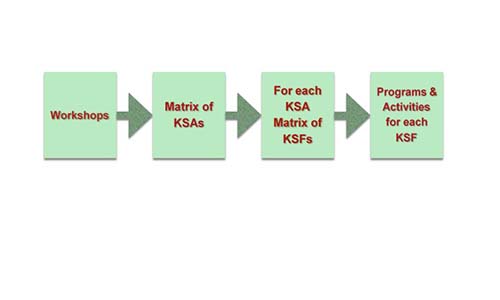Globalview Program: Strengthening Stability to Governorates Emerging from Conflict
The experiences of countries emerging from civil wars have shown that the state institutions are very weak and fragile and are subject to many post-war fluctuations due to the complexities of the consequences of the war and the magnitude of the destruction and the high expectations of the citizens for better services and living conditions in a short time, and the trust are almost non-existent between the parties to the conflict … that is happening in the Yemeni scene, which shows the inability of the state institutions to achieve stability in post-war areas (liberated).
The international experiences of the post-war countries have confirmed that giving great attention to the local communities in managing their affairs and providing their needs and strengthening the internal social peace has had a great impact on stabilising the country, which enabled the political process of the country to form and achieve the comprehensive desired goal.
The stability of Yemen in the coming periods will remain fragile due to the weakness of state institutions and the large and deep complexities in the social and political conflicts. This stability is necessary for the orderly transfer of power and the holding of early elections that will ensure the full participation of all political forces in Yemen, achieve a balance between the different social groups and regions in it, and the need to implement broad programs of institutional and administrative reform in the civil, security and military services, reconstruction and development of economic performance, solve the southern issue and the social and psychological effects of the aftermath of the coup in all regions of Yemen.
Key Stability Areas (KSA)
Based on workshops held by Globalview in Hadramout, the main areas of community stability lie in the following five areas:
Enhancing security.
Expanding the powers of local government in managing development and increasing its capabilities in management and generating resources.
Early recovery and Provide basic services.
Building trust between social and political forces in society and achieving social peace.
Confronting ideas of extremism, Strengthening resilience, Attention to women and youth, and Jobs creation.
stability program 1
Key Stability Factors (KSF)
The governorates of Yemen are different in terms of their areas of stability, from governorates that are almost local authorities are non-existent, and where there is a lack of confidence between the parties and governorates in which the threat of extremists is a direct and significant threat. Therefore, in each area of stability, the governorates differ in the degree of importance of the local stability factors (KSF) in each area. For example, the factors affecting security in Hadramout are different from those in Aden or Marib, and the reality of the local authorities varies between these governorates, Lahj and Abyan. Therefore, it is not possible to copy a program and its KSFs to strengthen stability in a governorate and apply it in another governorate without taking into account the conditions and local complications and the different factors of stability in each governorate.
For each governorate there is a need first to work out an analytical map of the KSFs in each of the five areas, and on the basis of a matrix of the KSFs in different areas, for each KSF identify programs and activities required.
Globalview Comprehensive Program to Promote Stability
Globalview has developed a comprehensive program to promote stability in post-war areas, with the exception of security. The comprehensive program includes the following areas (KSAs) (subprograms):
Expand the powers of local government in managing development and increase its capabilities in management and generating resources.
Cover the humanitarian and living needs of citizens and provide services.
Building trust between social and political forces in society and achieving social peace
Confronting ideas of extremism, attention to youth and jobs creation.


